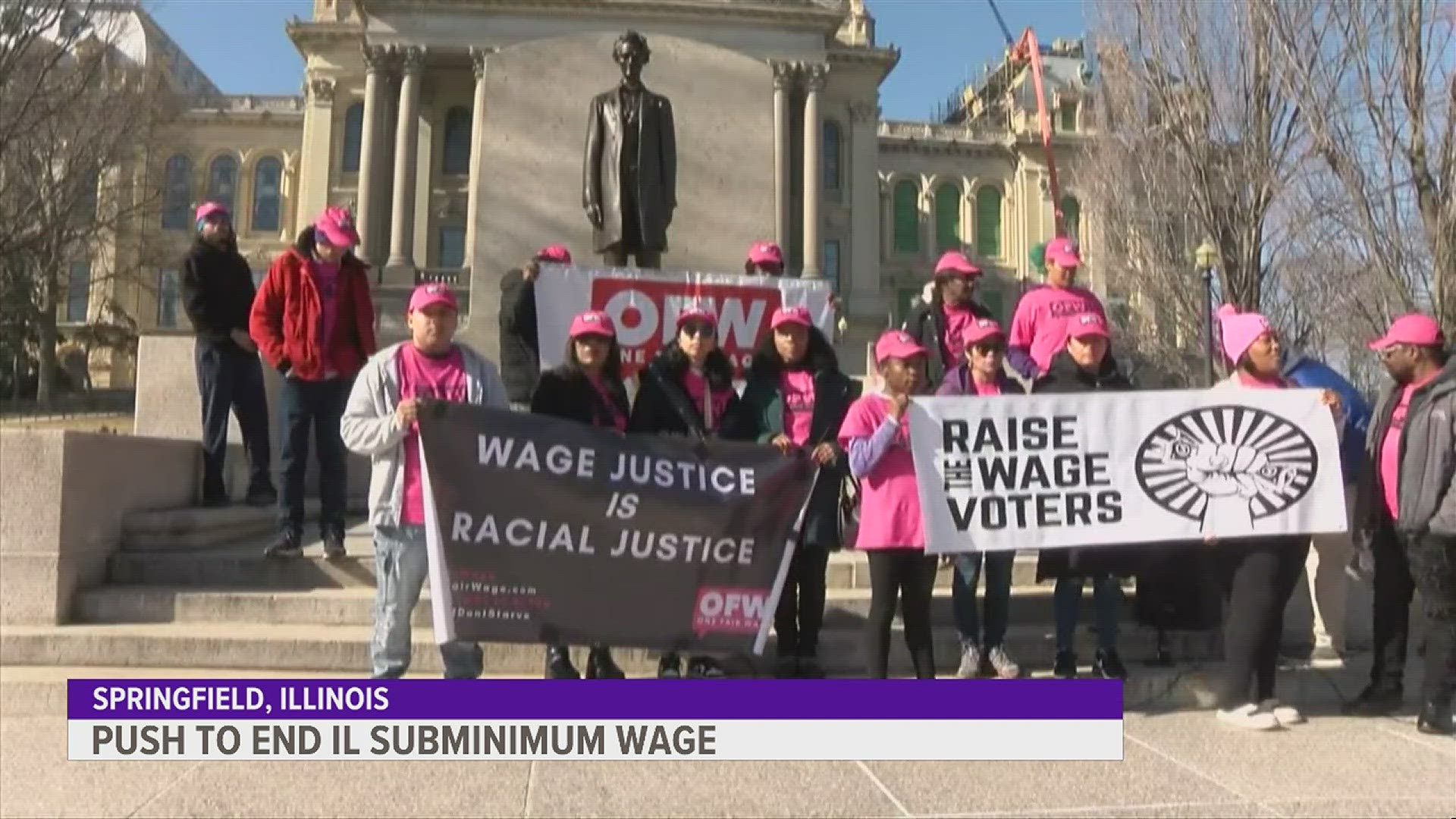CHICAGO — Families of gun violence victims are asking the state legislature to reform how police handle unsolved murder investigations through legislation introduced this week.
House Bill 4753, sponsored by Rep. Kam Buckner, D-Chicago, would establish a procedure for families to request a review of “open unresolved murders” or cold cases.
Buckner, whose uncle died in a yet-unsolved shooting, said the bill began as a “passion project” in 2019 that has gained new momentum since several advocacy groups have begun supporting it.
“Last year, we began to talk about what it would look like to beef up the legislation and to put a full press on the legislature to get it done,” Buckner said Tuesday.
Another bill from Buckner, House Bill 4754, would require law enforcement agencies to publish monthly data on how many homicides occurred and how many homicides were “cleared” through an arrest or were otherwise closed.
“Hopefully, it allows us to create some accountability in that space so there can be some real consistency between the way law enforcement and communities deal with each other,” Buckner said.
In Chicago, police announced last month that in 2023, the department reached a 51.7 percent clearance rate, the highest since 2019. Clearance rates are an oft-maligned metric, as they reflect crimes which occurred in past years but were solved recently.
The bills, which were introduced Monday, are far from passing. They would need to go through legislative committees in the House and Senate before receiving a vote.
Gun control advocates, who have celebrated several legislative wins the past few years, are throwing their support behind these proposals.
“We won’t stop until this bill becomes law,” Valerie Burgest, a deputy state lead with Moms Demand Action and fellow with Everytown Survivor Network, said on Tuesday. “This bill has become our organization’s number one legislative priority for this legislative session.”
But some law enforcement advocates are wary of the proposals. Jim Kaitschuk, head of the Illinois Sheriff’s Association, said his organization has opposed previous versions of Buckner’s cold case bill.
“The intentions are good, but there are a lot of other cases,” Kaitschuk said Tuesday.
The bills, Kaitschuk said, would strain sometimes under-resourced law enforcement agencies because they do not provide funding to implement them. He further warned that the bills might adversely impact smaller agencies.
Traffic stops
An unrelated bill, House Bill 4603, concerning police departments drew criticism over the past week. The legislation would have barred police from making minor traffic stops. This would have barred stops for failing to display registration, improper lane usage, tinted windows, defective mirrors or failing to wear a seat belt. It would have also barred officers from pulling over someone for speeding, unless the speeding violation was a felony or misdemeanor offense.
Police groups registered swift and public opposition to the proposal. Fraternal Order of Police State Lodge President Chris Southwood called the bill “anti-police” and said that it “takes the pro-criminal cake.”
“We urge the members of the Illinois General Assembly to never let such a potential legal lunacy rear its unhinged head,” Southwood said in a Monday news release.
State Rep. Justin Slaughter, D-Chicago, who introduced the bill, has since indicated it would not pass without a substantial amendment. He told the Arlington Heights Daily Herald the bill was “just a first iteration or draft” meant to start discussions.
Coalition once again pushes to eliminate state’s tipped wage
An advocacy coalition is once again pushing for legislation requiring employers to pay their tipped employees a base wage at least equal to the minimum wage.
Under current Illinois law, employers can pay their employees as low as 60 percent of the minimum wage as long as the worker’s tips make up the difference. In 2024, the statewide minimum wage is $14 per hour and the tipped minimum wage is $8.40.
In October 2023, Chicago City Council leaders passed the “One Fair Wage Ordinance” to increase tipped workers’ salaries by 8 percent each year until it reaches Chicago’s minimum wage of $15.80. One Fair Wage wants to pass similar legislation statewide.
At a news conference outside the Illinois State Capitol Tuesday, One Fair Wage leader and restaurant worker Corrine Terrell said the Chicago ordinance is helping support her family.
“Well to be honest, I think since it passed in Chicago the workers are happier. We don’t have to work as hard to make as much money,” she said. “We have more time with our families. It’s easier to save now. At first, I was only able to afford bills and food, now I can afford other things for my family.”
One Fair Wage leader Saru Jayaraman said legislative leaders could introduce the legislation by Friday.
Capitol News Illinois is a nonprofit, nonpartisan news service covering state government. It is distributed to hundreds of print and broadcast outlets statewide. It is funded primarily by the Illinois Press Foundation and the Robert R. McCormick Foundation, along with major contributions from the Illinois Broadcasters Foundation and Southern Illinois Editorial Association.
Watch more news, weather and sports on News 8's YouTube channel

